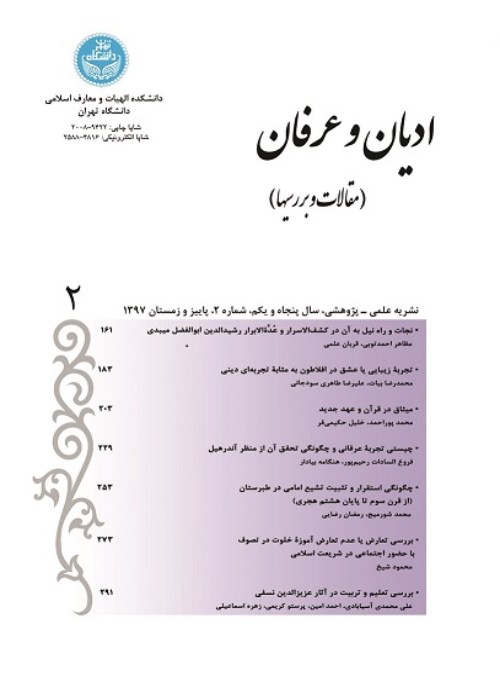The Absence of Esoteric Experiences in the Works of Rumi and the Problem of the Definition of Mysticism
Author(s):
Abstract:
In this article, we try to answer to two questions. The first one is "What is the meaning and the consequences of the absence of esoteric experience in the works of Rumi?" In answering this question, firstly we explain the notion of "the absence of esoteric experiences". Then after a short examination of this notion in the works of Muslim and Christian mystics, in the middle ages, we discuss the Rumi`s point of view about and his approach to the esoteric experiences and in the next step, we talk about the consequences of his view and his approach to this notion. These approaches are humiliating the esoteric experiences, silence and finally pointing to them implicitly. In the last section of the article, we reach the second question: how we can say that Rumi is a mystic despite the absence of esoteric experiences in his works? We discuss five viewpoints concerning mysticism including those of Turner, McGinn, Underhill and Russell, based of which Rumi could be recognized as a mystic.
Language:
Persian
Published:
Religions & Mysticism, Volume:42 Issue: 1, 2010
Page:
117
magiran.com/p852412
دانلود و مطالعه متن این مقاله با یکی از روشهای زیر امکان پذیر است:
اشتراک شخصی
با عضویت و پرداخت آنلاین حق اشتراک یکساله به مبلغ 1,390,000ريال میتوانید 70 عنوان مطلب دانلود کنید!
اشتراک سازمانی
به کتابخانه دانشگاه یا محل کار خود پیشنهاد کنید تا اشتراک سازمانی این پایگاه را برای دسترسی نامحدود همه کاربران به متن مطالب تهیه نمایند!
توجه!
- حق عضویت دریافتی صرف حمایت از نشریات عضو و نگهداری، تکمیل و توسعه مگیران میشود.
- پرداخت حق اشتراک و دانلود مقالات اجازه بازنشر آن در سایر رسانههای چاپی و دیجیتال را به کاربر نمیدهد.
In order to view content subscription is required
Personal subscription
Subscribe magiran.com for 70 € euros via PayPal and download 70 articles during a year.
Organization subscription
Please contact us to subscribe your university or library for unlimited access!


